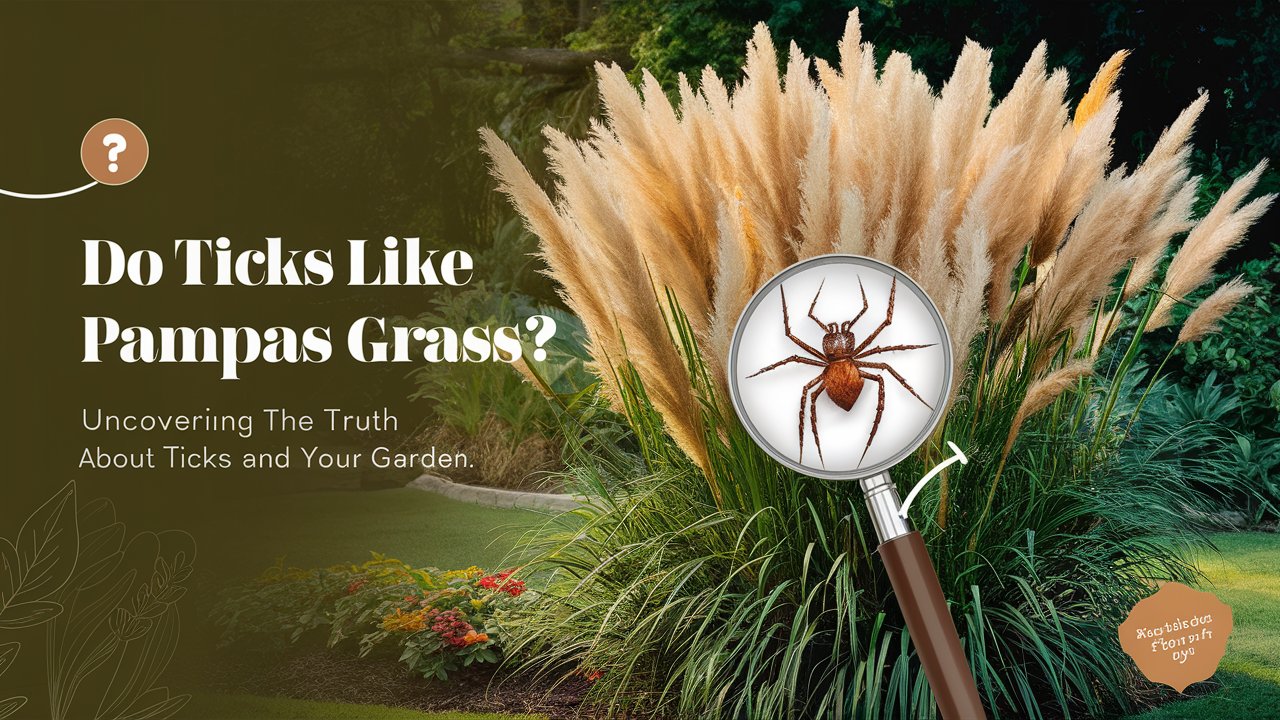Introduction: Do Ticks Like Pampas Grass?
When it comes to gardening and landscaping, a common concern for many homeowners is the presence of ticks. This brings us to an important question: Do ticks like pampas grass? Understanding the relationship between ticks and different types of vegetation can help in creating a safer and more enjoyable outdoor environment. Let’s dive into the specifics of ticks, their habitats, and whether pampas grass is a tick magnet.
Understanding Ticks: Habitats and Behavior
Ticks are small arachnids that feed on the blood of mammals, birds, and sometimes reptiles and amphibians. They thrive in warm, humid environments and are commonly found in wooded areas, tall grasses, and leaf litter. Ticks are known for their ability to latch onto hosts and can transmit diseases such as Lyme disease, Rocky Mountain spotted fever, and more.
What is Pampas Grass?
Pampas grass (Cortaderia selloana) is a tall, ornamental grass native to South America. It is popular in landscaping due to its striking appearance, with large, fluffy plumes and the ability to grow in a variety of soil types. Pampas grass can reach heights of up to 10 feet, providing privacy and an attractive focal point in gardens.
Do ticks like pampas grass?
Do ticks like pampas grass? The answer isn’t straightforward. While ticks do thrive in tall grasses and areas with dense vegetation, there is no concrete evidence that pampas grass is particularly attractive to ticks. However, like any tall grass, pampas grass can provide the ideal environment for ticks to hide and wait for a host.
Protecting Your Garden from Ticks
To minimize the risk of ticks in your garden, especially if you have pampas grass or other tall vegetation, consider the following measures:
- Regular Maintenance: Keep your grass trimmed and remove leaf litter and debris where ticks can hide.
- Create a Barrier: Use wood chips or gravel to create a barrier between lawns and wooded areas.
- Tick-Repellent Plants: Incorporate plants that are known to repel ticks, such as lavender, sage, and rosemary.
- Pesticides: In some cases, the application of pesticides might be necessary. Consult with a professional for the best options.
Health Risks Associated with Ticks
Ticks are vectors for several serious diseases. The most well-known is Lyme disease, caused by the bacterium Borrelia burgdorferi. Symptoms can include fever, headache, fatigue, and a characteristic skin rash. If left untreated, Lyme disease can spread to the joints, heart, and nervous system. Therefore, reducing tick habitats in your garden is crucial for your family’s health.
Preventative Measures: Keeping Ticks at Bay
- Personal Protection: Wear long sleeves and pants when gardening, and use tick repellents on skin and clothing.
- Pet Protection: Use tick prevention treatments on pets and regularly check them for ticks.
- Check for Ticks: After spending time outdoors, perform a thorough tick check on yourself, children, and pets.
- Professional Help: Consider hiring a professional to assess your garden and recommend specific treatments or landscaping changes.
Frequently Asked Questions (FAQs)
Do ticks like pampas grass more than other plants?
There is no specific evidence that ticks prefer pampas grass over other tall grasses. However, any dense vegetation can provide a suitable habitat for ticks.
Can removing pampas grass reduce the tick population in my garden?
Removing any dense vegetation can help reduce tick habitats. Consider a combination of landscaping changes and preventative measures for the best results.
Are there any natural predators of ticks?
Yes, some birds, amphibians, and small mammals feed on ticks. Encouraging a diverse ecosystem in your garden can help naturally control tick populations.
Conclusion:
While ticks may find pampas grass to be a suitable habitat, there is no definitive preference over other types of tall grass. By understanding tick behavior and implementing effective preventative measures, you can enjoy a beautiful, tick-free garden. Regular maintenance, protective barriers, and personal precautions are key to reducing the risk of tick-borne diseases. Stay informed and proactive to keep your outdoor space safe and enjoyable.


